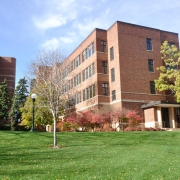Expenses Rising Faster Than Revenues For Many Apartment Owners
Expenses are rising faster than revenues for multifamily affordable housing properties, a trend that will likely continue to accelerate, according to a new report from S&P Global Ratings.
Property owners saw net income per unit increases, however, as rent growth was as high as 37% from 2020 to 2022.
Growth has slowed considerably in 2023, though. GlobeSt.com this week reported that the median US asking rent fell 0.6% YOY to $1,995 in May. That nationwide drop is the largest since March 2020, attributed to a building boom that increased supply and economic challenges that lessened demand.
Markets continue to reflect regional and local variations in their asking rates with the Northeast/Midwest posting rises of 5%, even as numbers nationwide declined from a year earlier in May, according to Redfin.
On the expense side, meanwhile, property insurance premiums are an increasing percentage of total expenses with the average property insurance costs rising from $387 in 2020 to $590 in 2022 and several insurers have announced plans to significantly increase premiums in California in 2023 and 2024 or limit their exposure in states with elevated environmental risks.
Repairs and maintenance costs rose from $816 to $1,045 and utilities spiked from $1,487 to $1,693.
Paula Munger, Vice President, Research, National Apartment Association, tells GlobeSt.com that based on a few very informal polls she has taken of owner/operators this year through early June, the results have been fairly consistent in that fewer than one in 10 are expecting NOI to decrease or go negative this year.
“It’s not happening, but it absolutely is top of mind for them in thinking that it might happen in the near future,” Munger said. “If the Federal Reserve truly is done raising rates, inflation continues to trend downward, the industry adjusts to higher for longer, the job market stays strong, and we manage to skirt a recession, I could see rent growth getting stronger next year.”
Karlin Conklin, Principal, Co-President & COO at Investors Management Group, tells GlobeSt.com, “Bid farewell to the days of double-digit rent growth when rising expenses were an afterthought.
“Entering a new era of expense management requires a recalibration. Expenses are one of the main levers we can work on during a market correction, as we increase NOI by minimizing costs.
“Rather than pursuing new revenue streams, we’re staying focused on collections. Our priority is to offer our residents a quality living experience of great value. We’re aiming for a win-win, particularly during challenging times, by maintaining reasonable rents that don’t burden residents with excessive charges.”
Conklin said insurance has been the greatest noncontrollable expense across her national portfolio over the past three to four years.
“Insurable values have risen dramatically over the last few years,” she said. “As the cost of construction rises, so does the replacement cost of a building.”
Geography is playing a large role in expense and revenue management.
Kai Pan, Executive Managing Director in JLL’s Value and Risk Advisory Group, tells GlobeSt.com, “We’ve heard insurance increase named as a primary reason for buyer re-trades in many coastal markets, and it has scuttled transactions in many cases.”
In his appraisals, he’s seen insurance increase from $1,042 to $3,484 per unit (234% in Gulf Coast) and from $434 to $1,206 per unit (177% in Florida).
This is happening at large public apartment REITS as well, he said.
“Camden reported in their Q1 23 earnings call that they expect total insurance expense will increase by approximately 35% in 2023 due to exposure to coastal markets,” Pan said.
“Even Equity Residential (EQR), who has no Florida exposure, reported about 20% increase on insurance portfolio-wide.
“Part of the reason for the extraordinary insurance increase is due to inflation-fueled construction cost increase, which leads to a larger amount to be insured.”
Doug Faron, co-founder and managing partner at Shoreham Capital, a privately held real estate firm in West Palm Beach, Fla, tells GlobeSt.com that recently Florida has experienced an increased frequency of natural disasters that have forced insurance carriers to leave the state.
“That, combined with a multitude of new developers entering the market, high-interest rates, and a rise in construction-defect litigation, has caused insurance premiums to skyrocket,” Faron said
Faron said there’s been a “massive spike” in insurance costs in just the past 90 to 120 days, with premiums for a multifamily property currently averaging anywhere from $1,400 to $2,500 per unit, up from $600 to $800 per unit at the start of the year.
“It is no longer just a coastal issue either, with inland cities, like Orlando, also experiencing high insurance rates,” he said. “These ballooning costs have the potential to affect site selection, delay construction timelines, or even kill a deal in its tracks.”
Source: GlobeSt.




